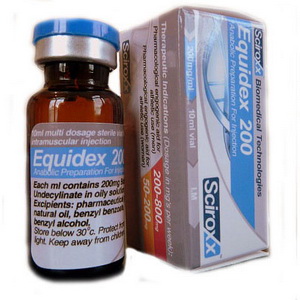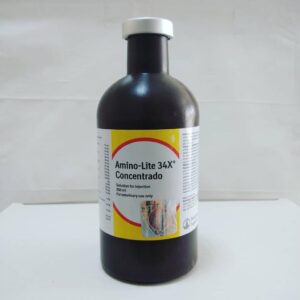Dormosedan for horse
Dosage and Administration
The dosage of Dormosedan depends on the size, weight, and condition of the horse, as well as the purpose of sedation. Dormosedan for horse
Dormosedan Injectable Dosage (Administered by Veterinarian):
Intravenous (IV): The typical dose ranges from 0.01 to 0.02 mg/kg body weight. This method provides rapid onset of sedation (within 2-5 minutes) and typically lasts for 30-60 minutes.
Intramuscular (IM): The dose can also be 0.01 to 0.02 mg/kg, but sedation may take slightly longer to take effect (within 10-20 minutes). The effects can last longer compared to IV administration.
Combination with Other Drugs: It is often used in combination with other sedatives or analgesics (such as butorphanol) to enhance its effects.
Dormosedan Gel Dosage (For At-Home Use):
The gel is administered under the tongue (sublingual administration) at a dose of 0.018 mg/lb (0.04 mg/kg) body weight. Dormosedan for horse
The onset of action is around 40 minutes, and the sedative effect typically lasts for 90-180 minutes. Horses should not be given food or water during the period of sedation and for at least 30 minutes after the sedation has worn off.
Precautions and Side Effects
Dormosedan is generally safe when used as directed by a veterinarian, but there are some potential side effects and precautions to consider:
Cardiovascular Effects: Dormosedan can cause bradycardia (slow heart rate), reduced cardiac output, and changes in blood pressure. Care should be taken when administering it to horses with pre-existing heart conditions.
Respiratory Depression: It may reduce the respiratory rate, especially at higher doses or when used in combination with other sedatives.
Sweating and Pale Mucous Membranes: Some horses may experience excessive sweating or pale gums after administration.
Ataxia (Lack of Coordination): Horses may become uncoordinated after receiving it, and care should be taken to ensure they are in a safe environment until the sedation wears off.
Gastrointestinal Effects: In rare cases, Dormosedan may reduce gastrointestinal motility, which can be a concern in horses prone to colic.
Urination: Some horses may experience increased urination after receiving the drug.
Contraindications
Pregnant or Lactating Mares: It should be used cautiously in pregnant mares, particularly in the late stages of pregnancy, as it may induce premature labor.
Severe Liver or Kidney Disease: Horses with severe liver or kidney issues should not receive itunless deemed necessary by a veterinarian. Dormosedan for horse
Heart Disease: Caution should be exercised in horses with heart disease, as Dormosedan can affect cardiovascular function.
Post-Administration Care
Handling the Sedated Horse: Horses under the influence of Dormosedan should be handled carefully to avoid injury. The sedative effects can make them uncoordinated and prone to stumbling.
Withholding Feed and Water: It is recommended to withhold food and water during the sedative period and for at least 30 minutes after the sedation wears off to prevent choking or aspiration.
Veterinary Applications
Veterinary Clinics: Dormosedan injectable is used by veterinarians during clinical procedures, including dental work, suturing, and minor surgeries.
At-Home Use: The gel form is ideal for owners who need to sedate their horse for transportation or routine care, such as farrier visits.
Dormosedan for horse
Dormosedan is a versatile sedative used for various purposes in horses, including calming anxious horses, facilitating dental work, and preparing them for minor surgeries. It provides reliable sedation, muscle relaxation, and mild analgesia, making it a key tool in equine veterinary care.
Key Points to Remember:
Dormosedan Injectable: Used by veterinarians for clinical procedures, quick-acting, and available in IV or IM form.
Dormosedan Gel: A user-friendly oral form for horse owners, ideal for light sedation during routine procedures.
Side Effects: Includes cardiovascular effects, ataxia, and respiratory depression. Proper dosage and post-administration care are important.
Safe Use: Always consult a veterinarian to determine the correct dosage and usage for your horse.
Dormosedan equine
Dormosedan is a widely used sedative in veterinary medicine, specifically designed for horses. Its active ingredient is detomidine hydrochloride, which provides sedation, muscle relaxation, and mild analgesic effects. Dormosedan is available in different forms, including injectable and oral gel, and is commonly used for various procedures, such as dental work, minor surgeries, and handling difficult horses. Dormosedan for horse
What is Dormosedan?
Dormosedan is a potent α2-adrenoceptor agonist, primarily used for:
Sedation: To calm horses during medical procedures, transport, or other stressful situations.
Muscle Relaxation: It helps facilitate physical exams, radiographs, and minor procedures by relaxing the horse’s muscles.
Analgesia: Dormosedan provides mild pain relief, though it is typically used in combination with other analgesics for more significant pain management.
Forms of Dormosedan
Dormosedan Injectable: This form is typically administered intravenously (IV) or intramuscularly (IM) by a veterinarian. It provides quick sedation and is used in clinical settings.
Dormosedan Gel: The oral form is designed for at-home use by horse owners for light sedation during routine procedures or to manage a horse’s anxiety.
Mechanism of Action
The active ingredient, detomidine, works by binding to α2-adrenoceptors in the central nervous system. This binding results in reduced sympathetic nervous system activity, leading to sedation, relaxation, and a decrease in pain perception.
Uses of Dormosedan in Horses
Dormosedan is used for:
Sedation for Dental Work: It calms horses for routine dental procedures or more complex interventions.
Minor Surgical Procedures: Provides sedation and muscle relaxation for minor surgeries or diagnostic procedures such as wound suturing or radiographs.
Handling Difficult or Nervous Horses: Used to sedate anxious or difficult-to-handle horses for transportation, farrier work, or other potentially stressful situations.
Pre-anesthetic Medication: Dormosedan is sometimes used as a pre-anesthetic sedative to help prepare a horse for general anesthesia.
Colic Management: In cases of mild colic, it may be used to sedate the horse and relieve discomfort while the veterinarian assesses the situation.
Tranquilization for Transport: Used to calm horses during transport, particularly if they are prone to anxiety or stress.




Reviews
There are no reviews yet.